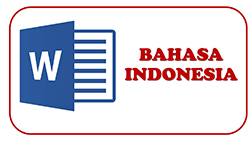Reflection on The Implementation of Differentiated Social Studies Learning to Support The Achievement of Islamic Personality Values in The Merdeka Curriculum
Abstract
This study aims to determine the application of social studies learning carried out in a differentiated manner, the implementation process and its impact on students. The researcher will explore data on whether or not this differentiated learning model will be a solution in developing independent learning in implementing differentiated learning for students of MTs. Wachid Hasyim Surabaya with various student needs. The qualitative method was chosen to obtain in-depth data on the implementation of differentiated learning and its relevance to the merdeka curriculum. Meanwhile, the case study was chosen because it describes the phenomenon of differentiated learning innovation by referring to the school that is the focus of the research. From two sources of Islamic teachings related to muamalah matters. The verses about worship and the verses about social life are one in a hundred. For one verse of worship there are one hundred verses of muamalah. Likewise in the hadith books. Of the twenty volumes of Fath al-Bari: Syarah Sahih Bukhari, only four volumes deal with matters of worship. This shows the importance of the personality values of students taught in differentiated learning. Differentiated learning in social studies subjects applied at MTs. Wachid Hasyim Surabaya has had a positive impact on students and teachers. The application of differentiated learning carried out by social studies teachers uses three stages, namely 1) differentiation of content applied in mapping student interests, 2) differentiation of the process. Researchers see that in implementing differentiation learning, teachers are still confused about the concept of proper process differentiation
Downloads
References
Alamsyah, A., Rahmat, M. & Tandigego, K. V., (2024). Fostering Religious Tolerance in Students through Children's Spirituality (CSE) Education. EDUKASI: Jurnal Penelitian Pendidikan Agama dan Keagamaan. 22, (1) 57-78, https://doi.org/10.32729/edukasi.v22.i1.1847
Andriani, S. (2023). A Case Study of Implementing Differentiated Instruction in Social Studies Teaching at a Junior High School in Banyuwangi. Sibatik Journal, 2, (10) https://doi.org/10.54443/sibatik.v2i10.1408
Astawa, I. D. M. (2017). Pengantar Ilmu Sosial. Depok: Rajagrafindo Persada.
Barr, Robert., James L. Barth dan Samuel Shermis. (2018). Konsep Dasar Studi Sosial. Bandung: Sinar Baru.
Brenner, C.A. (2022). Self-Regulated Learning, Self-Determination Theory And Teacher Candidates’ Development Of Competency-Based Teaching Practices. Smart Learn Environ. 9, (3). https://doi.org/10.1186/s40561-021-00184-5
D’Amico, M. (2013). Approaching the Direct Object Pronouns: How Much Grammatical Form Is Necessary in Instruction?. Open Journal of Modern Linguistics, 3,(1). 319-329. https://doi.org/10.4236/ojml.2013.34041.
Faiz, A., Pratama, A., & Kurniawaty, I. (2022). Pembelajaran Berdiferensiasi dalam Program Guru Penggerak pada Modul 2.1. Jurnal Basicedu, 6(2), 2846–2853. Universitas Pahlawan Tuanku Tambusai. DOI: https://doi.org/10.31004/basicedu.v6i2.2504
Farida, Y, Alam, H. V, Hafid, R, Umar, Z. A & Pakaya, A. (2023). Application Of Differentiated Learning Strategies To The Learning Outcomes Of Public Junior High School Students In Yendidori District, Papua Province. European Journal of Humanities and Educational Advancements. 4 (8).
Gunawan, R., Sudarman, S. and Astuti, R.F. (2022). Pengembangan Media Pembelajaran Interaktif Menggunakan Articulate Storyline pada Mata Pelajaran IPS Kelas VIII di SMPN 34 Samarinda. Educational Studies: Conference Series. 2, (1). 54–62. https://doi.org/10.30872/escs.v2i1.1196.
Hapsari, T., Darhim & J. A. Dahlan (2018). Understanding and responding the students in learning mathematics through the differentiated instruction. Journal of Physics: Conference Series, 10 (1), https://doi.org/10.1088/1742-6596/1013/1/012136
Hartomo & Aziz, A. (2019). Ilmu Sosial Dasar. Jakarta: Bumi Aksara.
Hidayat, B. (2023). Pembelajaran Berdiferensiasi Pendidikan Ips Di Sekolah Dasar. Jurnal Ikatan Alumni PGSD UNARS, 14, (2), https://doi.org/10.36841/pgsdunars.v14i2.4025.
Khaerunisa & Purnamasari, I. (2024). Penerapan Pembelajaran Berdiferensiasi pada Mata Pelajaran IPS di Kelas VII SMP Negeri 2 Jawilan. Journal of Academia Perspectives 4 (1), 19-24. http://dx.doi.org/10.30998/jap.v4i1.2247
Lebga, A., Yemmafouo, A., Ngouanet, C., Ghoutum, A. and Mbi, B. (2022). Analysing Mismatches in the Demand and Supply of Classrooms in the Basic and Secondary Education Sectors in Cameroon. Journal of Geographic Information System, 14, (1) 175-192. http://dx.doi.org/10.4236/jgis.2022.143010.
Masitoh & Cahyani, F. (2020). Penerapan Sistem Among dalam Proses Pendidikan Suatu Upaya Mengembangkan Kompetensi Guru. Kwangsa: Jurnal teknologi Pendidikan. 8, (1); 122-141. https://doi.org/10.31800/jtp.kw.v8n1.p122--141
Marlina, M., Kusumastuti, G., & Ediyanto, E. (2023). Differentiated Learning Assessment Model to Improve Involvement of Special Needs Students in Inclusive Schools. International Journal of Instruction, 16(4), 423-440. https://doi.org/10.29333/iji.2023.16425a
Nurjanah, L., Handayani, S., & Gunawan, R. (2021). Konsep Dasar IlmuPengetahuan Sosial dalam Dunia Pendidikan. Chronologia, 3(2), 38–48. https://doi.org/10.22236/jhe.v3i2.7242
Nurjanah, N., Cahyana, U. and Nurjanah, N. (2021). Pengaruh Penerapan Online Project Based Learning Dan Berpikir Kreatif Terhadap Keterampilan Proses Sains Siswa Kelas IV Pada Pelajaran IPA Di SD Nasional 1 Kota Bekasi. Buana Pendidikan: Jurnal Fakultas Keguruan dan Ilmu Pendidikan Unipa Surabaya. 17, 1 (Feb. 2021), 51–58. https://doi.org/10.36456/bp.vol17.no1.a3161.
Pohan, A. P & Murti, R. C. (2022). Analysis of Factors Affecting Student Interest in Studying in a Pandemic Period in Basic Social Sciences Elementary School Concepts. Al-Ishlah: Jurnal Pendidikan. 14, (4); 4807-4814 https://doi.org/10.35445/alishlah.v14i4.2247
Pozas, M, Letzel-Alt, V, & Schwab, S. (2023). The effects of differentiated instruction on teachers’ stress and job satisfaction. Teaching and Teacher Education. 12(2), 103-112. https://doi.org/10.1016/j.tate.2022.103962
Pratama, Dhaifullah Mochtar Adi., Abidin, Zaenal. (2024). Implementation of Project-Based Learning Model in Islamic Religious Education for Grade X at Muhammadiyah High School 1 Surakarta. Juspi: Jurnal Sejarah Peradaban Islam. 8(1), 177-184. https://dx.doi.org/10.30829/juspi.v8i1.20622
Putra, G. S. (2023). Misconception tendency of differentiated instruction in publicly shared teaching and learning videos on youtube: A mixed-methods exploration study. Jurnal Penelitian dan Evaluasi Pendidikan, 27(2), 189-200. https://doi.org/10.21831/pep.v27i2.60233
Rajagopalan, I. (2019). Concept of Teaching. Shanlax International Journal of Education, 7, (2); 5-8. https://doi.org/10.34293/education.v7i2.329
Ries, S. M & Renzulli, J. S. (2018). The Five Dimensions of Differentiation. International Journal for Talent Development and Creativity. 6(1).
Riyanto, M., Yunita, Jamilah, Monica, Zuhri, Subakti, A., Agussalim, Anggereni, D. T., Purwandari, E. (2022). The Utilization of Google Classroom in Social Studies Learning. Edukatif: Jurnal Ilmu Pendidikan. 4, (6) https://doi.org/10.31004/edukatif.v4i6.4194
Sari, N, Hibana, & Zulfa, N. A. (2024). Model Pendekatan Taman Indria Ki Hadjar Dewantara dan Implementasinya dalam Pendidikan Anak Usia Dini. Murhum: Jurnal Pendidikan Anak Usia Dini. 5, (2), 253-267. https://doi.org/10.37985/murhum.v5i2.837
Setiawan, D. (2017). Kontribusi Tingkat Pemahaman Konsespsi Wawasan Nusantara Terhadap Sikap Nasionalisme dan Karakter Kebangsaan. JUPIIS Jurnal Pendidikan Ilmu Ilmu Sosial. 9 (1); https://doi.org/10.24114/jupiis.v9i1.6457
Swasono, Agus. (2013). Pengembangan Media Pembelajaran IPS Berbasis Website untuk Siswa SMP Kelas VIII Pokok Bahasan Pengendalian Sosial. Yogyakarta: Universitas Negeri Yogyakarta. http://eprints.uny.ac.id/id/eprint/21869
Suryati, I., Ratih, K. & Maryadi (2024). How Can Teachers Tailor Success? Innovative Strategies for Content, Process, and Product in EFL Classrooms. VELES Journal. 8, No. 1; April 2024. E-ISSN 2579-7484. DOI: http://dx.doi.org/10.29408/veles.v8i1.24451
Trifatmasari, M., Tri Oktoviana, L. and Dewi Puspitasari, E. (2023). Analysis of Student Learning Styles in Differentiation Learning. KnE Social Sciences. 8, (1) 46–57. https://doi.org/10.18502/kss.v8i10.13431
Wahidmurni, A. M., & Ridho, A. (2010). Evaluasi Pembelajaran: Kompetensi dan Praktik. Yogyakarta: Nuha Letera.
Wahidmurni, Wahidmurni (2010). Pengembangan kurikulum IPS dan Ekonomi di sekolah/madrasah. Malang: UIN-Maliki Press.
Zaki, A, Suparno & Nulhakim, L. (2021). The Role of Teachers in Improving Student Learning Outcomes in Thematic Learning Through the Use of The Environment As a Learning Resource. Jurnal Ilmiah Sekolah Dasar. 5, (1), 61-68. https://ejournal.undiksha.ac.id/index.php/JISD/index





.png)










